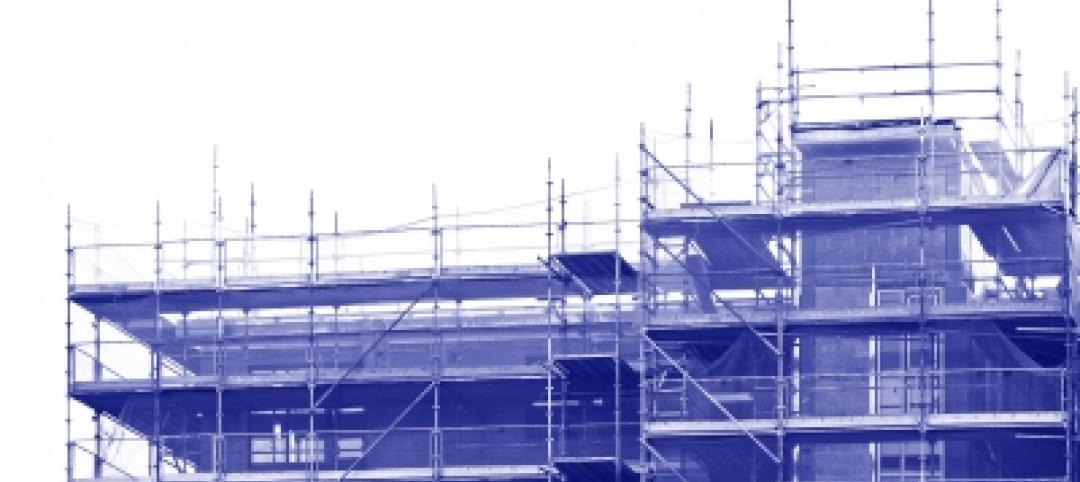The continued growth of zero energy buildings (ZEB) will be driven by commitment from developed and developing economies in pursuing ZEB targets, enforcement of stringent global building codes and standards, and advancements in building technologies.
That’s the assessment from a new report, Global Zero Energy Buildings (ZEB) Promise New Efficiency Beyond Cost and Innovative Technologies, 2020 by Frost & Sullivan. Today, less than 1% of the buildings in the world are ZEB-certified, the report says.
ZEB market restraints include ambiguities and inconsistency issues resulting in the absence of a universally approved definition and approach to ZEB. Also, current up-front costs for deploying ZEB technologies are high, and most building occupants are not ready for large-scale ZEB adaption.
The report looks at the ZEB market in five technological segments: high-performance heating, ventilation and air-conditioning (HVAC) Systems; energy-efficient lighting; solar photovoltaic (PV) systems and solar thermal systems; and energy-efficient building envelope materials. The market revenue of these technologies in 2019 was $86.1 million, the report says.
The report is available at: https://www.reportlinker.com/p06000043/?utm_source=GNW
Related Stories
| Mar 5, 2014
Quebec's building code doesn't meet needs of its aging population
The issue was raised in the wake of a tragic fire at a seniors' residence in L'Isle-Verte.
| Mar 4, 2014
Massachusetts Congressional delegation asks FEMA to slow flood zone map requirements
After a recent successful challenge of the scientific methodology used to redraw the coastal high-hazard zones, the Massachusetts congressional delegation is asking federal officials to put the brakes on new flood zone maps for the Bay State.
| Mar 3, 2014
Injury-liability law responsible for higher construction insurance cost in New York
Construction contractors and developers in New York state face $3 billion more in costs and 667 more accidents per year because of a state law that holds builders solely liable for such accidents, according to a study commissioned by the New York Civil Justice Institute.
| Feb 28, 2014
GBI issues guide to help federal agencies meet sustainability mandates
The Green Building Initiative has released “The Guiding Principles Compliance for New Construction,” for federal buildings to help federal agencies meet sustainability mandates in the construction of new buildings.
| Feb 28, 2014
Steel Joist Institute standards open for review
The 2015 draft of the Steel Joist Institute’s “Single Joist Standard Specification for K-, LH-, and DLH-Series and Joist Girders” will be available for public review until May 31, 2014.
| Feb 28, 2014
Metcalf Construction wins key reversal from federal appeals court in Hawaii on military contract
Metcalf spent more than $76 million on a military construction project and sued to recoup costs.
| Feb 19, 2014
Obama Administration moves to boost fuel efficiency standards on heavy-duty vehicles
The Obama Administration wants to boost fuel efficiency of medium- and heavy-duty trucks for models made in 2019 and later.
| Feb 19, 2014
Net Positive Energy + Water is latest green certification standard
The advancement of sustainable construction has reached a new milestone with the development of Net Positive Energy+Water, a new green building certification standard that aims to improve net zero approaches to energy and water conservation.
| Feb 19, 2014
Obama’s climate resilience panel says PVs, cool roofs should be part of solution
Among the suggestions were rooftop solar energy systems and cool roofs, which could be encouraged by policies from local governments.
| Feb 19, 2014
OSHA proposes three-year postponement of crane operator certification requirement
OSHA’s proposal to postpone the compliance date for crane operator certification by three years was made official on Feb. 7 when it was published in the Federal Register.














